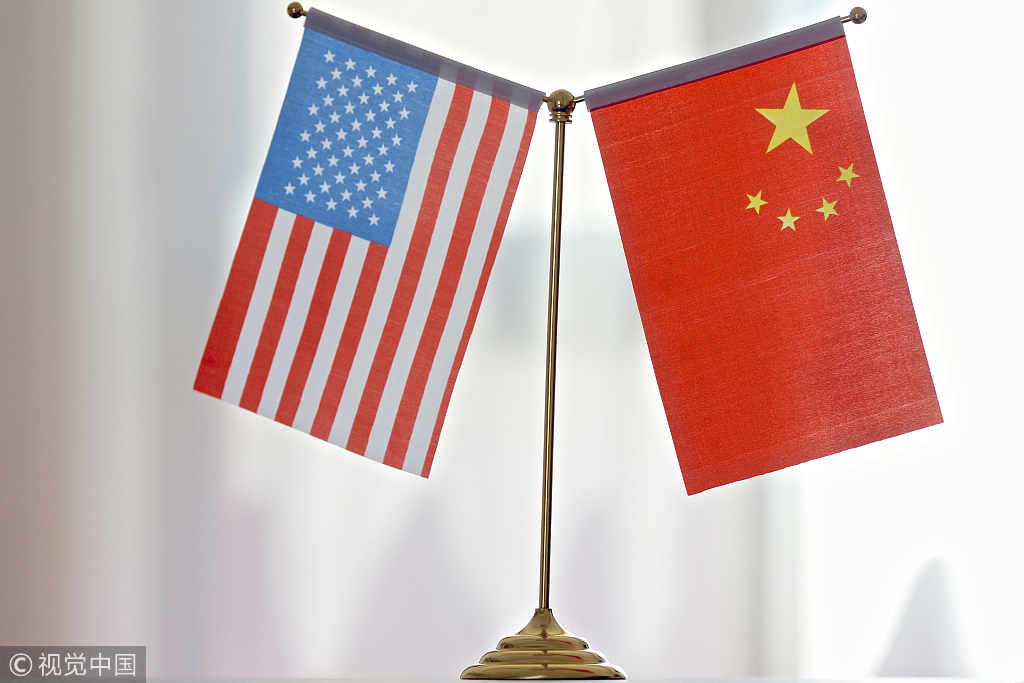Trump adds to tariffs on China


The US stock market fell sharply, and business leaders expressed dismay after President Donald Trump said Thursday that he would impose a 10 percent tariff on an additional $300 billion in Chinese goods starting Sept 1.
The new levies target consumer electronics, including Apple's iPhone, sneakers, clothes and toys.
Thursday's announcement will put tariffs on basically all Chinese goods coming into the US, but medicine will not be affected. Last year, Trump imposed tariffs on Chinese industrial materials and components valued at about $250 billion.
"We thought we had a deal with China three months ago, but sadly China decided to re-negotiate the deal prior to signing," Trump tweeted on Thursday. "More recently, China agreed to buy agricultural product from the U.S. in large quantities, but did not do so."
China reciprocated following Trump's initial round of tariffs.
China's Ministry of Commerce said on Thursday that some Chinese companies have purchased a batch of US agricultural products based on market needs and have applied for the removal of additional tariffs on the foodstuffs.
The Customs Tariff Commission of the State Council is reviewing the exemption applications, Gao Feng, the ministry's spokesman, said at a news conference.
The enterprises, including State-owned and private entities, have inquired with US exporters about prices for agricultural products such as soybeans, cotton, pork and sorghum, Gao said.
Trump's latest round of tariffs may suggest that the trade talks are not going well, or it could be a hardball negotiating tactic to get better terms from China, analysts said.
In a series of tweets, Trump said negotiators still planned to meet next month as scheduled and he expressed a desire to reach a "comprehensive trade deal" with China.
Stocks, bond yields and oil prices fell after Trump's announcement. The Dow Jones Industrial Average had rebounded more than 300 points in intraday trading from Wednesday's substantial decline, but closed down 280.85 points or 1.05 percent Thursday, to 26,583.42.
Jake Parker, senior vice-president at the US-China Business Council in Washington, a trade group representing US companies that operate in China, told CNBC that he feared Trump's decision to impose additional tariffs would drive the Chinese from the negotiating table rather than improve the US position.
Doug Barry, director of communications for the council, said the new tariffs will hurt consumers and further roil the market.
"(Trump's action) is certainly detrimental to the timely conclusion of trade negotiations that have been underway for a year," Barry told China Daily. "It seems like it will potentially sidetrack progress that has been made, especially since the negotiators were busy up until yesterday in Shanghai and had scheduled another meeting for early September."
He said consumers already are concerned about rising prices, but uncertainty is detrimental to all sectors of the economy.
"We know farmers are already feeling a great deal of pain," Barry said. "The business community does not like uncertainty — that's reflected in the stock market today."
Helana Natt, executive director at the Greater New York Chamber of Commerce, said the persistent squabbling between the US and China hurts consumers.
"They (top leaders of both countries) need to sit down at the table as soon as possible because this back-and-forth yo-yo approach is hurting consumers and businesses," she told China Daily.
"We won't be adding an additional tremendous amount of — we have, I guess, $350 billion left, which could be taxed or it could be tariffed. And we're not going to do that," Trump said at the G20 summit in June.
Gary Cohn, former president of Goldman Sachs and Trump's chief economic adviser who resigned in March, said he believes the tariffs have created economic uncertainty and stopped businesses from investing.
"I think everyone loses in a trade war," Cohn told the BBC in an interview aired on Thursday. "We are an 80 percent-service economy. The service side of the economy is doing very well because, guess what, it's not being tariffed."
But he said American industry is hurt by the ongoing trade dispute with China.
"When you build plant equipment, you're buying steel, you're buying aluminum, you're buying imported products, and then we put tariffs on those, so literally the tax incentive we gave you with one hand was taken away by the other hand," he told the BBC. "So, we're not seeing the manufacturing-job creation. And I think if we get through this tariff situation, there's a real opportunity to see it here in the United States."
The new tariffs were announced one day after the Federal Reserve cut interest rates on Wednesday for the first time in 10 years. Fed Chairman Jerome Powell said the cut was intended to boost the US economy amid a worldwide economic slowdown and continued uncertainty created by trade tensions.
"Today's (tariff) announcement increases the risk that the Fed cuts rates by more than 75 (basis points) in total this year," Deutsche Bank Senior US Economist Brett Ryan wrote in a note to clients.
Reuters contributed to this story.




































